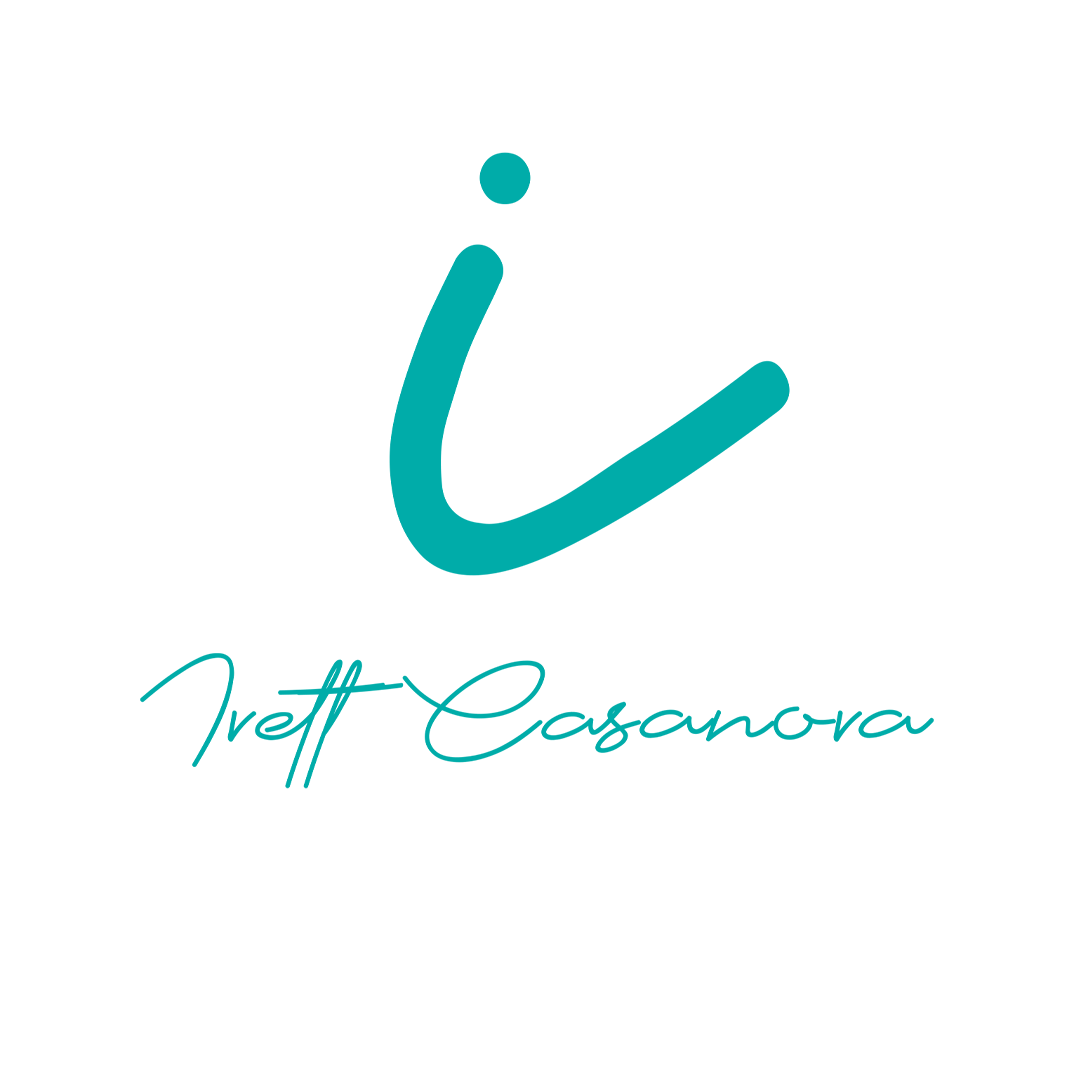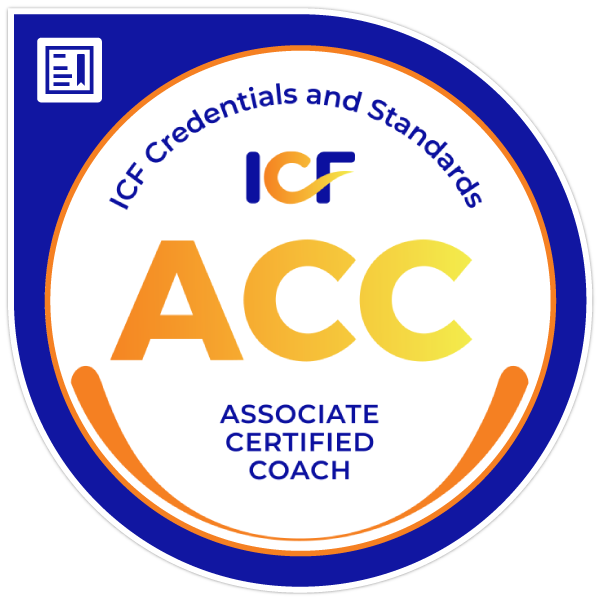Professional women, leaders, and entrepreneurs often set ambitious career and personal goals. These goals can range from achieving leadership positions, expanding their businesses, balancing work and family life to attaining personal milestones like well-being and self-actualization.
However, reaching these goals often involves significant sacrifices. These can include cutting down on time spent with family and friends, giving up recreational activities, overburdening oneself with home and professional responsibilities (or vice versa), and constantly facing pressure and stress.

So, what does it mean to take care of our energy? For many, it’s one of those “esoteric” terms that seem vague. In my work as a coach, supporting these wonderful women in their growth, I see a pattern that appears regardless of a woman’s age—it’s how they manage their energy. Let’s talk a bit about this concept.
Taking care of energy for women means consciously and effectively managing the physical, mental, and emotional resources available to them daily. It means balancing external demands from work, family, and social responsibilities with the internal needs of well-being and self-actualization.
One way to understand this concept, which personally captivated me a few years ago, is through the perspective of Tony Schwartz and Jim Loehr in their book The Power of Full Engagement. They explore managing energy as the key to high performance and a fulfilling life. Schwartz and Loehr introduce the idea that energy, not time, is our most valuable and limited resource – and yes, it truly is!

For professional women, leaders, and entrepreneurs, taking care of energy is essential to staying healthy, happy, focused, creative, and resilient amidst the many challenges and pressures of the workplace and personal life. It means setting clear boundaries, practicing self-care, cultivating positive relationships, and seeking a purpose beyond professional goals.
According to the authors, people experience four dimensions of energy: physical, emotional, mental, and spiritual. Taking care of energy means optimizing these dimensions and recognizing the interconnection between the body, mind, emotions, and spirit.
For women, this means balancing the demands of work or business with the demands at home, with partners, children, parents, friends, and personal life, while practicing habits that promote physical health, emotional well-being, mental clarity, and spiritual connection. Wow! It’s an ongoing life task that, in my view, never ends but rather evolves.
Now, what are some of the situations where I should care for my energy? What are the warning signs I need to pay attention to?
Let’s answer those questions by categorizing them into areas. Here are some of them:
At Work
- Overloaded with tasks: When you feel overwhelmed and take on too many responsibilities without enough time to complete them effectively.
- Toxic environment: If you find yourself in a workplace filled with tensions, conflicts, microaggressions, lack of teamwork, constant criticism, or a lack of emotional and professional support.
- Lack of recognition: Despite your excellent results, your efforts and contributions are not acknowledged or valued by your superiors or coworkers.
At Home
- Unequal distribution of responsibilities: If you are constantly overwhelmed with household chores and family care without adequate support from other household members (this is one of the most common alerts I’ve seen in professional mothers).
- Lack of personal time: When you don’t have enough time for yourself because of the constant demands of family and household life. It’s those days when you can’t even sit down for a few minutes on your couch, sipping tea or enjoying the wine you love.
- Relational conflicts: When you experience conflicts or tensions with your family that drain your emotional and mental energy. Many of these tensions aren’t timely addressed or clarified but instead accumulated, creating an emotionally unhealthy environment.
With Your Partner
- Lack of communication: A lack of effective communication with your partner can lead to misunderstandings and unnecessary tensions. Without realizing it, these tensions persist in all aspects of your being (physical, mental, emotional).
- Power imbalance: If you feel like you’re in an unequal relationship where one person takes on most responsibilities and makes key decisions. I’ve worked with many women who feel voiceless in their homes, constantly feeling inferior and trapped by the decisions of their spouses or other family members.
In Your Social Life
- Toxic relationships: If you have relationships with people who constantly criticize, judge, or make you feel bad about yourself.
- Social overload: When you feel obligated to participate in too many social activities and commitments that don’t bring you genuine joy or satisfaction. It feels like you’re always pretending instead of being genuine and authentic.
With Your Children
- Parental exhaustion: When you’re constantly physically, mentally, and emotionally drained from taking care of your children, sometimes without support from your partner. Commonly, mothers take on the responsibility of discipline, leading to a constant energy drain.
- Lack of personal time: When you don’t have enough time for yourself because of the responsibilities and care of your children, you feel overwhelmed and disconnected from your own needs. You’re not getting enough sleep, eating correctly, etc.
- Pressure to be perfect: The feeling that you have to be the ideal mother, following the Wonder Woman pattern, can generate stress and anxiety, affecting your energy and well-being.
In Social Pressures and Social Media
- Constant comparison: The tendency to compare your life with others who seem perfect on social media can lead to feelings of inadequacy and decreased self-esteem. It happens on everyone’s subconscious level.
- Marketing bombardment: The constant barrage of advertising and marketing on social media and other platforms can create a continual need to acquire more things, leading to financial, mental, and emotional exhaustion.
- Lack of authenticity: The pressure to maintain a perfect appearance on social media can lead to distance from one’s true self, as one expends energy maintaining a facade instead of cultivating meaningful and genuine relationships.
Take Action After Becoming Aware!
As you can see, there are many situations we need to pay attention to. But, yes, women are generally subjected to these pressures in one way or another, to a greater or lesser extent. Then, this is how the days go by, and sure, we do achieve goals many times, but at other times, we don’t. Some come with significant sacrifice because having all aspects of life in complete balance requires deep internal work, dedication, and discipline.
To make this possible, to take care of our most valuable resource, our energy, and to have a fulfilling life in balance while achieving our goals and success, we must start refocusing our actions to prioritize self-care and protect our energy.
It might sound easy to say, but I know it’s not that simple. But as I always say, as a coach, you can’t make changes in your life unless you’re aware and identify those alert situations. Otherwise, you live on autopilot.
We need to stop, women! We must give ourselves that time alone, those moments where we can breathe and become aware of how we’re living, how we’re feeling, what is making us uncomfortable, what emotions we are feeling, and what is making us sick. We need to be aware of what’s happening to us; only then can we act coherently and take action to recover our energy.
The second step is to start taking action after becoming aware, which can involve many things. I’ll address some of those actions in different categories below so they can serve as examples and inspiration for the deep personal work each one of us must do.
At Work
- Learn to set boundaries: This means saying no to commitments that don’t align with your goals and values. Develop the art of delegation to stay focused on what truly matters and avoid burnout and overload.
- Develop your circle of control and influence: Identify key people in your professional circle who can support you in essential projects, from being your sponsors or promoters to those you can make team members and delegate responsibilities to.
At Home
- Create a family calendar: Write a shared calendar where tasks and responsibilities are assigned to each family member. For example, designate days for house cleaning, meal preparation, and pet care. Have the necessary conversations to agree on those task commitments.
- Celebrate team accomplishments: Recognize and celebrate family achievements, whether completing a project at home or reaching a financial goal. Organizing a special dinner or a family fun day to acknowledge the collective effort will bring joy to the family and create a harmonious atmosphere that fosters communication and teamwork at home.
With Yourself
- Develop self-care and well-being: These are essential for maintaining high energy levels. Dedicate time to activities that promote your physical, emotional, and mental health, such as regular exercise, meditation, rest, and proper nutrition.
- Practice the art of saying no: Learn to set healthy boundaries by declining commitments that don’t contribute to your well-being or happiness. For example, decline a social meeting invitation when you need time to rest and recharge.
- Create a relaxation space at home: Designate a quiet corner where you can meditate, read, or be alone. Decorate the space with comforting items like soft cushions, scented candles, or plants, and play music that helps you recover your energy. In my case, mantras are a great tool for lowering my stress and returning to my center.
With Your Partner
- Implement active listening time: Regularly practice active listening with your partner and family. For example, each member shares their day’s experiences during dinner, and others practice listening without interruption. And please, keep listening! Develop the art of asking powerful questions that encourage personal responsibility and self-awareness from each person.
- Prepare for difficult conversations: Identify a calm moment when you are free from distractions to address a difficult conversation. Communicate your feelings and concerns clearly and respectfully. Use “I” instead of “you” to avoid making the conversation a personal attack. For example, instead of saying, “You always do this wrong,” you can say, “I feel frustrated when this happens.” Avoid blaming or judging your partner during the conversation and promote the search for solutions together.
With Your Children
- Develop your support circle: Every mother needs trustworthy people around her to ease parenting responsibilities. Identify who and what you can delegate to other family members, such as parents, siblings, etc., or external people who can help with childcare.
- Create scheduled free time: Establish specific periods during the week where each parent can choose how they want to spend their free time. For example, one parent can enjoy a hobby while the other takes care of family responsibilities.
Pressure for Perfection
- Work on your limiting beliefs: Dare to work on those beliefs that lead you to the pursuit of perfection. Seek help from a professional coach or therapist who can guide you through the self-discovery process and remove those internal barriers that drain your energy and prevent you from experiencing the fulfillment you seek.
- Work on developing your self-esteem and self-confidence: Practice self-compassion. Often, we are permissive and compassionate with others but not with ourselves. When facing mistakes, practice resilience and develop a growth mindset by seeing those errors or failures as opportunities to learn and grow.
Impact of Social Media and Marketing
- Create time for meaningful connections: Set daily or weekly moments free from electronic devices where you are alone. Your family can connect differently, like organizing a game night or a walk in nature.
- Clean up your social media accounts: Ask yourself whether the information you consume on social media nourishes or drains your energy. You, more than anyone, know the emotional or bodily sensations you feel when seeing certain content. Decide to unfollow accounts, blogs, etc., that drain you and instead nourish yourself with content that makes you feel better, helps you recover your energy, and feeds your soul.
As discussed, taking care of our energy is essential to facing daily challenges and cultivating a fulfilling life. When we recognize the daily alerts that signal the need to recharge and protect our energy, we must act and adopt practices that promote our balance. From setting healthy boundaries to practicing self-compassion and open communication, every action we take to care for our energy brings us one step closer to a more harmonious life, in balance, and with purpose. Ivett Casanova



